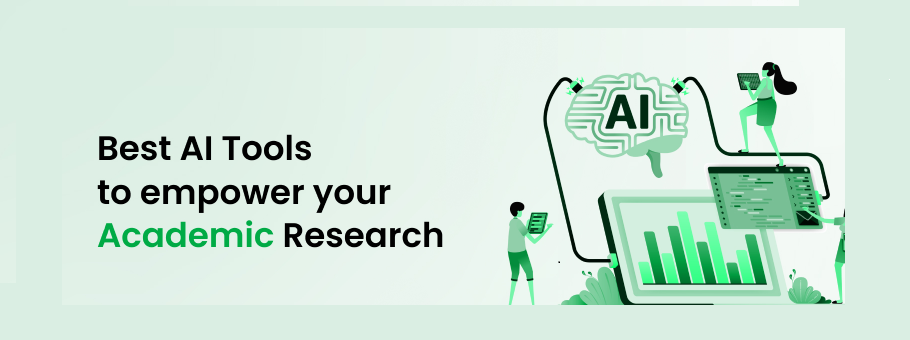✍️ Introduction: The Researcher’s Dilemma
Every academic researcher knows the struggle: too many papers, too little time. Between chasing citations, synthesizing arguments, and ensuring your methodology stands up to scrutiny, the research process can feel endless.
This is where AI enters the picture. According to TechCrunch, AI-driven research tools are helping students and scholars automate tedious tasks like literature reviews and citation management — freeing them to focus on insights, not just information overload.
But here’s the truth: AI is only as powerful as the prompts you feed it. With the right frameworks and tools, you can transform ChatGPT, Claude, Gemini, or any AI model into your personal research assistant.
📚 Why Academic Researchers Need AI Tools
AI tools are no longer “nice to have” — they’re becoming essential for academic workflows:
- Literature review automation – Summarize 50+ papers into clear themes in minutes.
- Citation management – Generate, format, and organize references instantly.
- Research synthesis – Spot connections between studies you might otherwise miss.
- Drafting support – Turn rough notes into structured sections of a paper.
But the difference between helpful AI and frustrating AI? Prompt design. That’s where platforms like My Magic Prompt shine.

🛠 The Best AI Tools for Academic Research in 2025
1. ChatGPT & Claude: Generalist Research Assistants
Both tools can summarize articles, generate outlines, and explain complex theories in simpler terms. But they’re only as useful as your prompts.
🔑 Pro tip: Instead of asking “Summarize this paper,” try:
“Summarize this paper into 3 themes, identify gaps in methodology, and suggest 2 follow-up research questions.”
2. Elicit: The Literature Review Companion
Elicit is designed specifically for academic work. It helps you:
- Automate systematic literature reviews
- Extract structured data from papers
- Find papers you might not discover through Google Scholar
It’s like a smart librarian that reads everything for you.
Alt text suggestion: “Elicit AI dashboard for academic research”
3. Zotero + AI Integration: Smarter Citation Management
Zotero is already beloved by researchers for references, but with AI-powered plugins, it can:
- Automatically generate APA, MLA, or Chicago style citations
- Summarize references in your library
- Suggest relevant new papers
No more late-night formatting stress.
4. My Magic Prompt: The Researcher’s Secret Weapon
Most AI tools are powerful, but they don’t teach you how to prompt strategically. That’s where My Magic Prompt comes in:
- Prompt Builder – Create structured prompts for literature reviews, paper drafting, and research synthesis.
- Prompt Templates – Access ready-made academic templates (e.g., “Critical Analysis Framework” or “Thesis Chapter Outline”).
- AI Toolkit – Integrate with ChatGPT, Claude, Gemini, and more.
Want to go faster? Install the Magic Prompt Chrome Extension to build and save prompts directly in your browser.

🔑 Framework: How to Use AI for Literature Reviews
Instead of reading dozens of papers line by line, try this structured workflow:
- Collect – Use Elicit or Google Scholar to gather 20–50 papers.
- Extract – Copy abstracts into your AI tool.
- Prompt with structure – Example: “Compare these abstracts. Identify recurring themes, gaps in methodology, and 3 new research questions.”
- Synthesize – Feed AI outputs into My Magic Prompt to refine arguments and structure.
- Validate – Always double-check AI results against original texts.
This framework combines speed with academic rigor.

❓ FAQ: AI Tools for Academic Researchers
Q1: What’s the difference between a good and bad AI prompt in research?
- A bad prompt is vague: “Summarize this paper.”
- A good prompt is structured: “Summarize this paper into 3 themes, critique methodology, and suggest future directions.”
Q2: Can AI replace traditional literature reviews?
No — but it can accelerate the process. AI can summarize and highlight, but you must validate findings against original research.
Q3: How do I keep my academic prompts organized?
Use prompt libraries or the Prompt Builder in My Magic Prompt. You can save templates for “literature review,” “thesis outline,” and more.
Q4: Are AI tools acceptable in academia?
Yes, but transparency is key. Many universities recommend citing the tool if you use AI in your methodology. See Harvard Business Review on the ethical use of AI in knowledge work.
Q5: Can I use AI for data analysis in research?
Absolutely — AI can help with qualitative coding, thematic analysis, or even running regressions, depending on the tool.
🤍 Closing Thought
Academic research is still about curiosity, rigor, and critical thinking — but now, AI can take care of the repetitive parts. From automating literature reviews to managing citations, the best AI tools for academic research help you work smarter, not harder.
If you’re ready to design better prompts and unlock the full potential of ChatGPT, Claude, or Gemini, explore My Magic Prompt. Think of it as your research co-pilot — one that helps you ask smarter questions, faster.

